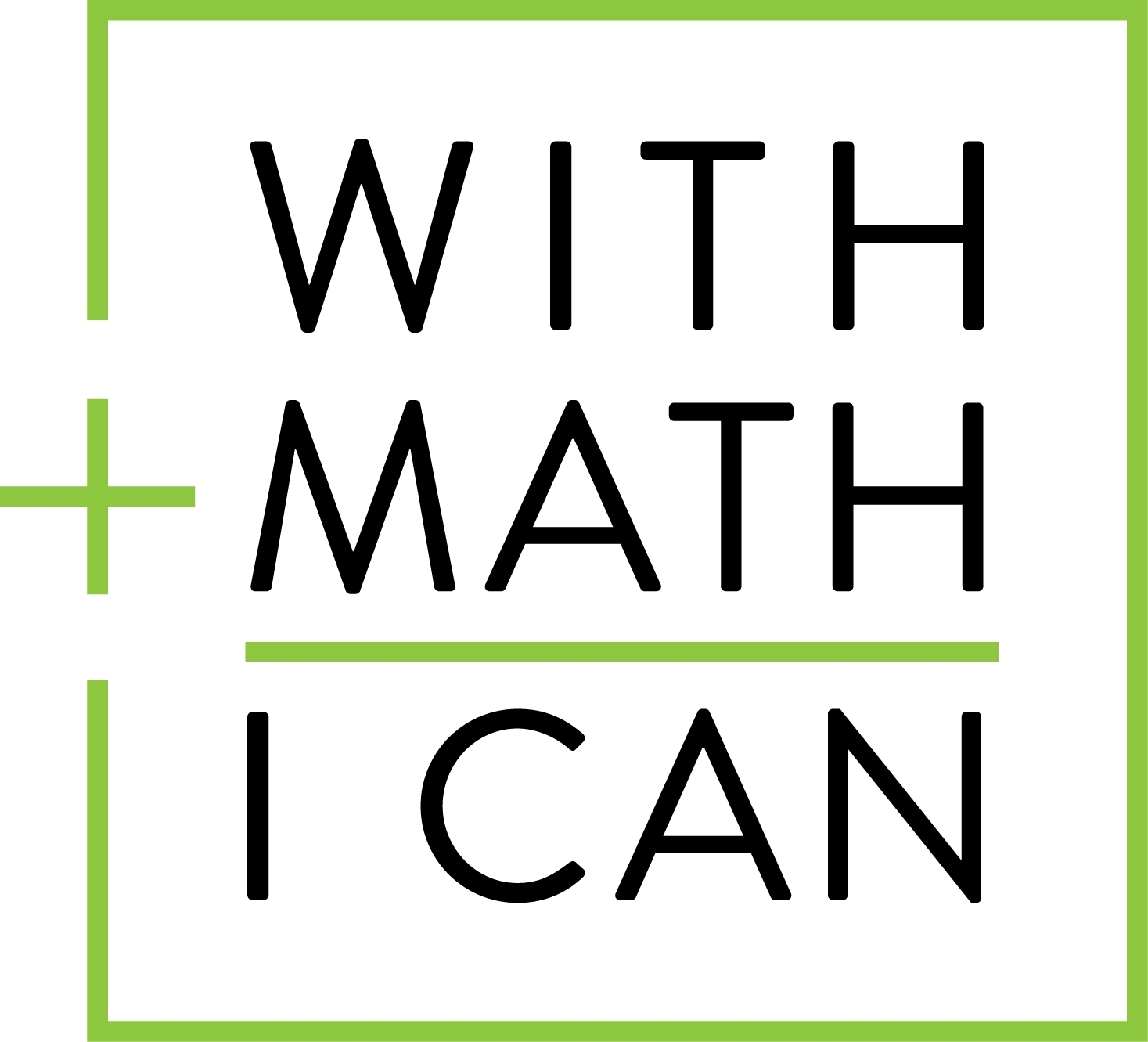I've got great news...Everyone can do math!
The bad news is that everyone doesn't believe this. In fact, lots of people don't believe this. How many times have you or someone you know said, "I'm not good at math." or "I'm not a 'math person'." or "I don't have a math brain."? You never hear people say this about Science or Social Studies; it's only about math. And the reason people say this is (probably) because of the way they learned math in school.
Math has always been taught as a bunch of rules to follow, a lot to senseless things to memorize, and a whole lot of procedures to do. Nobody ever taught you why these procedures make sense or why these rules are in place. They just said something like "You have to know it." (This is akin to the parent who says to his or her child, "Because I say so.") Not a very good reason and certainly not a compelling reason for learning and understanding.

And to make matters worse, we now have generations of people (parents and grandparents) who believe that this is the way math is supposed to be taught. We have parents saying to their children, "I know it's hard and I know it doesn't make sense, but this is just the way it is and you have to do it." This is a terrible message for students to receive. It says to students that even their parents think that math is weird and confusing and doesn't make sense. It reinforces the message that says "You will probably not understand this." So a lot of students accept this message and basically say, "Fine. I'm never going to 'get it', so I'm not going to try anymore."
It doesn't have to be this way. Our mathematics classrooms can be filled with positive messages that tell students that math is about creativity and making connections. Messages that tell students that it is OK to make mistakes in math class because that is how you learn. And messages that explain that you don't have to be first to get the correct answer. In fact the best math students are slow in thinking and reasoning and understanding.
Everything in this post comes from Dr. Jo Boaler and from the website that she created called YouCubed. She has spent her professional career trying to understand how students learn and how teachers teach. Her ideas and suggestions can lead to a new world of mathematics teaching and mathematics learning. All of this is based on research and not from one person's point of view or experience.
Understanding math is important and we need public school teachers to teach for understanding; we need parents to encourage understanding in math class; and we need students to believe that they can learn mathematics as easily as any other subject.



Maths is a compulsory subject for all students in Singapore. It is a highly valued academic subject because it develops critical thinking in our students. It is also important because it is very applicable in real life – addition, subtraction, division, multiplication – are used in conjunction to help one in banking, accounting, investing and even in managing personal finances. This is very good source of maths learning tips and points.
ReplyDeleteA great website with interesting and unique material what else would you need. 统计学补习
ReplyDelete